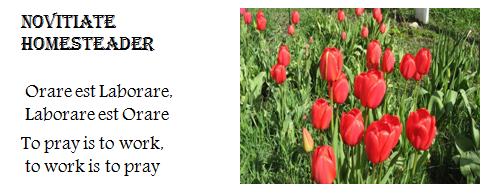I’ve been thinking a little about what I view as the twin
catastrophes facing us in the century we have just begun. Maybe there are more than just two
catastrophes we can expect, but I’m pretty convinced that “Peak Oil” and
“Climate Change” will affect our lives in the upcoming years.
I don’t think I’ll go into an extended explanation or
defense of these concepts here. There
are plenty of better resources out there if you search the subjects on the
web. That said, I have decided to focus
on the following areas in which to make positive changes in our lifestyle. We’ve decided to reduce our carbon footprint,
build local community, be prepared, cut costs, increase income, prepare for
climate changes, and prepare for peak oil.
I’ve done a little brainstorming in each of these
categories. There is certainly more that
could be added, and I would love any input you all have. It is important for me to say that I have
come to the conclusion that “survivalism” is not the answer. “Prepping” may be a part of the answer but
there are multiple areas that I/we should be focusing on to ride out some of
the changes I think are coming. Most
important among these is the development of resilient communities and becoming
more interested in localization than on globalism.
With an eye to reducing our carbon footprint we have decided
to make the following changes;
Eat local
Eat in season
Eat organic + small farm
Reducing driving to town
Live frugally
Reduce, re-use, recycle
Reduce the use of combustion engines on the farm
Avoid non-local food even if it’s organic
Eat non-gmo
Eat non-factory farmed meat
Avoid plastics
Eliminate waste of commodities
Grow our own food
Raise our own meat
Grow my own tobacco
Why all this focus on eating local? Much of what we eat comes from industrial
farms located far, far away from our homes.
Shipping food from around the country and even around the globe uses a
tremendous amount of fossil fuel.
Furthermore, the industrial agriculture model requires the input of
massive amount of fossil fuel in the form of petroleum based fertilizers and
chemicals. The additional use of
internal combustion engines in the form of tractors and combines further adds
to the problem. In the future I believe
there will no longer be sufficient oil to support this kind of
agriculture. Nor do I think there will
be petroleum to transport the food it produces.
Therefore, we think it is prudent to curtail our dependence on non-local
food sources.
Again, let me reiterate that we think survivalist plans are
not the answer. It is through resilient
communities built with love that we will thrive in an uncertain future.
“Therefore do not be perturbed; remain calm so that you will
be able to pray. Above all, let your
love for one another be constant, for love covers a multitude of sins. Be mutually hospitable without
complaining. As generous distributors of
God’s manifold grace, put your gifts at the service of one another, each in the
measure he has received.” 1 Peter
4:7-4:10
Blessings





No comments:
Post a Comment